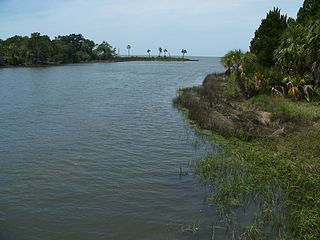 February 29, 2016 - As a result of a Florida Sea Grant annual meeting in Gainesville, partners in science, policy, and municipalities work together to achieve policy success.
February 29, 2016 - As a result of a Florida Sea Grant annual meeting in Gainesville, partners in science, policy, and municipalities work together to achieve policy success.In 2011, the Florida legislature amended the Growth Management Act and authorized communities to adopt coastal flooding/sea level rise “adaptation action areas” through their comprehensive plans. At the subsequent Sea Grant meeting, Whitney Gray proposed adapting this planning tool to a natural resources context. A UF team working on policy options took Whitney’s “thinking outside the box” idea to the small Gulf Coast community of Yankeetown, which embraced it. Yankeetown is somewhat unusual in that its municipal boundaries extend well into the Gulf of Mexico. The tam of UF scientists and law professors assisted the Town with a grant proposal that had creating a Natural Resources Adaptation Action Area (NRAAA) as a goal, and the development of a community-adopted “science plan” and “business plan” as steps toward that goal. The team then partnered with the Watershed Ecology Lab in the College of Engineering (Dr. David Kaplan) and Yankeetown received a planning grant from the Department of Economic Opportunity. They completed the science and business plans, both of which focused on adaptation, and both of which were adopted by resolution. The science plan included a community wide “bioblitz” to inventory the flora and fauna of the Town-owned Withlacoochee Gulf Preserve (ably assisted by Leroy Creswell). The Business Plan was designed to promote the Town and Preserve as a destination for “science-based education” focused on estuarine adaptation to sea level rise. They also drafted a model comprehensive plan amendment directed toward natural resources adaptation and worked with the Town attorney to tailor it to the Town’s circumstances as a “Natural Resources Adaptation Action Area.” The Town is a “hometown democracy town” which means that all of its comp plan amendments must be placed on the ballot for a referendum, a procedural mechanism subsequently prohibited by the Florida legislature. The Town voted on the comp plan amendment on February 23, 2016 and it passed overwhelmingly. A copy of the comp plan amendment may be downloaded below, along with a poster which describes the project. One reason for pursuing this planning tool comes from the opportunities it may provide to develop an Area-wide approach to restoration to promote adaptation, a concept UF leads are promoting at the upcoming 2016 National Conference on Ecosystem Restoration, and one which may make communities like Yankeetown that embrace this approach more attractive in terms of the funds coming to Florida through the BP spill settlement.
Submitted by Thomas T. Ankersen, Professor, UF Levin College of Law
Image Credit: Ebyabe; Source: https://en.wikipedia.org/wiki/File:Yankeetown_west01.jpg











